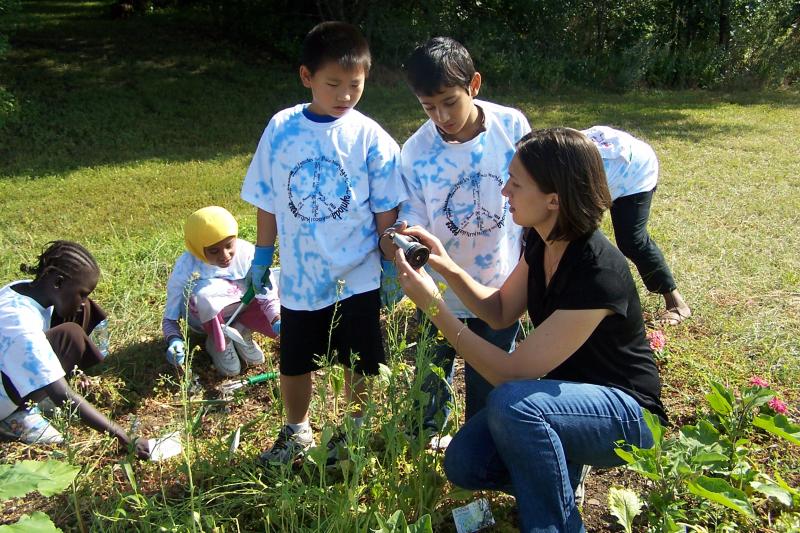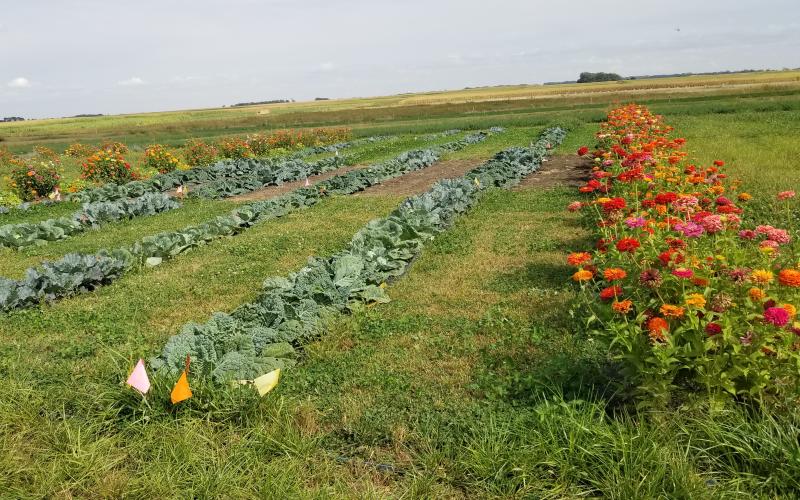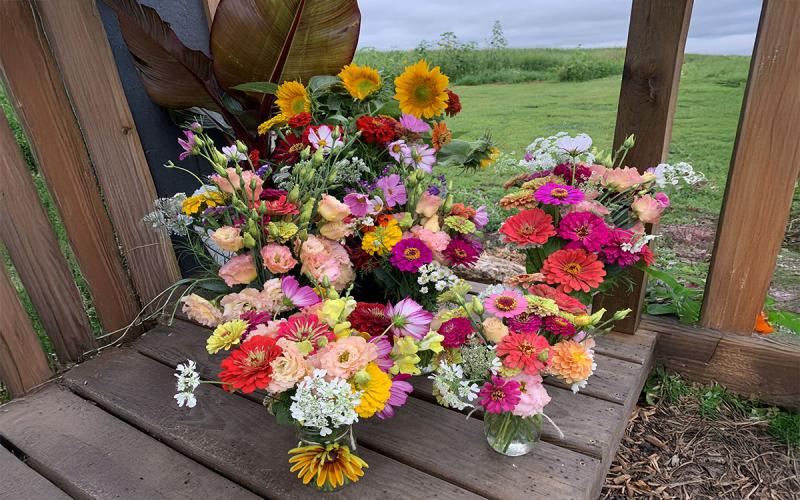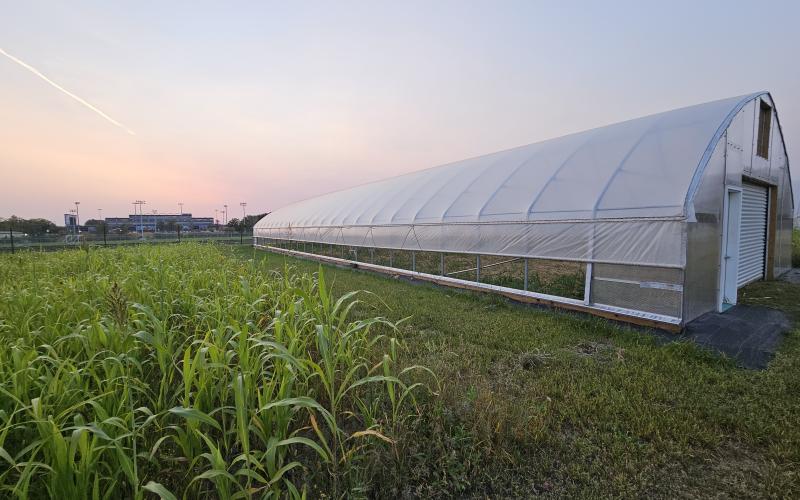
Written by Chris Zdorovtsov (Former SDSU Extension Community Vitality Field Specialist).
When working with upper elementary youth in a garden consider their physical development and skill level as you develop learning activities.
Nine to eleven year olds have better coordination and reaction time by this age, however sometimes dues to growth spurs there can be short-term issues with balance and coordination. Additionally, these children have more body strength and their hand dexterity has increased. The ability to use garden tools will increase, and they will be able to participate in activities such as building a compost bin or trellis.
Children of this age are able to participate in the garden design process. For example, they could sketch a garden on graph paper or use tools developed by SDSU Extension, such as the Vegetable Garden Planning Activity for plotting out plant arrangements in garden beds. In this activity student will cut out circles of different sizes that represent a wide range of vegetable crops. The circles can then be arranged into garden templates. This activity will help take discussions on area and diameter into a real-world application.
Emphasize not just the ‘doing’ in the garden, but ‘doing well’ approach to activities. Explain that a deep watering of the soil to reach the roots will help plants grow versus a light sprinkling that just wets the surface. Teach them to take extra care as they harvest in order to not damage plants and ultimately hinder growth.
This age group may begin to enjoy competition so consider allowing the students or teams to prepare recipes from garden produce that are taste-tested, voted on, and awarded ‘Best Dish.’ Encourage students to grow their own vegetables and enter them in the county or state fair.
Always remember to allow time for reflection or debriefing after each gardening activity. Have students demonstrate what they are learning or allow them to mentor younger students on how to garden. This will give them the opportunity to apply their knowledge and further develop competencies related to gardening. It also allows them to apply leadership skills and recognize their self-worth.


